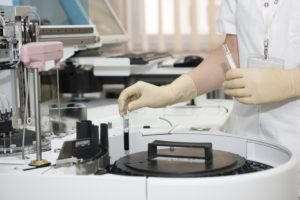
Improve egg quality with acupuncture, Chinese herbs and resveratrol
For over a decade I have encouraged clients to use resveratrol to improve their egg quality. In this research article resveratrol was used in a unique way.
What’s resveratrol? Resveratrol is found in peanuts, berries, the skin of red grapes, red wine, and in the Japanese Knotweed plant also known as polygonum. Research has proven it has strong antioxidant/estrogen protection which can enhance egg quality.
Resveratrol increases the protein SIRT1, which slows a cell’s aging process and improves the DNA quality within the egg to potentially enhance embryo quality.
Interestingly enough, this study uses resveratrol as a liquid medium in the petri dish to mature the fertilized egg. Embryos matured in 1.0 UM of resveratrol had improved genetic qualities.
I highly doubt American clinics will start using resveratrol as liquid medium for maturing embryos. It’s too new to the market place. So how can you get resveratrol into your system?
To ingest an effective dose of resveratrol to improve egg quality requires more than food can deliver. The human dose should be in the range of 200 to 400mg/day. My favorite source of resveratrol is Resveratrol Supreme from Designs for Health who produces a high potency, high quality 200mg formulation. Their formulation has quercetin, which is a synergist to resveratrol.
Who is resveratrol for? Women with high FSH and low AMH, “older” in age or dealing with poor quality embryos after genetic testing. Men with low sperm count or low motility or poor-quality embryos diagnosed with genetic testing.
Acupuncture, Chinese medicine, Chinese herbs and supplements can improve your fertility. Are you looking for whole person health care enhance your physical wellbeing and fertility? Try Ridgefield Acupuncture.
Resveratrol improves in vitro maturation of oocytes in aged mice and humans
Mei-Ju Liu, M.D., Ph.D., Ai-Gang Sun, M.D., Shi-Gang Zhao, M.D., Ph.D., Hui Liu, M.S., Shui-Ying Ma, M.D., Ph.D., Mei Li, M.D., Ph.D., Ying-Xue Huai, M.S., Han Zhao, M.D., Ph.D.
,
DOI: https://doi.org/10.1016/j.fertnstert.2018.01.020
Objective
To evaluate the effects of resveratrol on oocyte maturation in aged mice and humans.
Design
Experimental laboratory study.
Setting
University-based reproductive medicine center.
Patient(s)
A total of 64 women 38–45 years of age undergoing intracytoplasmic sperm injection (ICSI) and 48–52-week-old female C57BL/6J mice.
Intervention(s)
In vitro culture in the presence of three different concentrations of resveratrol (0.1, 1.0, and 10 μm) or dimethylsulfoxide.
Main Outcome Measure(s)
Parameters of oocyte nuclear maturation, fertilization, immunofluorescence intensity of mitochondria, and normal morphology of spindle and chromosome of oocytes undergoing in vitro maturation (IVM) in aged mice and humans; blastocyst formation and levels of SRIT1, CAT, SOD1, and GPX4 gene expressions in aged mice.
Result(s)
Resveratrol at 1.0 μm significantly increased first polar body emission rate in oocytes derived from aged mice and humans, and an increased percentage of fertilization and blastocyst formation was observed in aged mice. In addition, immunofluorescence intensity of mitochondria and normal morphology of spindle and chromosome of oocytes undergoing IVM were notably improved compared with control samples in aged mice and human. Furthermore, the use of resveratrol exhibited enhanced expression patterns of SRIT1, CAT, SOD1, and GPX4 in aged mice.
Conclusion(s)
Resveratrol induced oocyte maturation and blastocyst formation in aged mice, and improved oocyte maturation and quality was examined in aged humans. In conclusion, 1.0 μm resveratrol was the appropriate concentration in IVM medium.
